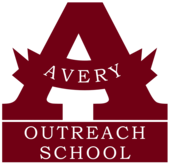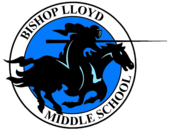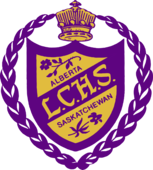Policy 7
BOARD OPERATIONS
In order to discharge its responsibilities to the electorate of the Division, the Board shall hold meetings as determined by the Board within the constraints of legislation. A quorum, which is a simple majority of the number of trustees, must be present for every duly constituted meeting. The Board has adopted policies regulating its proceedings so that the business of the Board can be conducted in an orderly and efficient manner.
The purpose of Board meetings is to ascertain group opinion and through motions and resolutions to focus Board action on specific issues. Respectful behavior preserves the inherent dignity of everyone; therefore, it is important that Board meetings be conducted in an environment that is productive, orderly and respectful of Board members, staff and members of the public. The organization of the Board meeting will effectively enable Board members and others in attendance to participate in an atmosphere of mutual respect. Board meetings will be conducted in person to the extent possible. In unique or special circumstances, at the discretion of the chair, the Board can conduct its meetings electronically. Electronic meetings will be held in compliance with section 5 below and with The Electronic Meeting Procedures Regulation, Chapter E-0.2 Reg 6.
Cellular telephone calls will not be initiated or accepted at Board or Committee meetings unless the Board approved such use in exceptional circumstances.
- Electoral Boundaries and Elections
Order in Council 101/97 amended Alberta Regulation 43/79 (the Lloydminster Charter) and established the boundaries of the Lloydminster Public School Division to be comprised of the incorporated area of the City of Lloydminster as well as the following lands lying west of the Third Meridian in the Province of Saskatchewan:
Township 49, Range 27: sections 30 and 31;
Township 49, Range 28: section 25, the east half of section 36;
Township 50, Range 27: sections 6, 7 and 18; and
Township 50, Range 28: the east halves of sections 1 and 12, the north-east quarter of section 13, section 14, fractional section 15.
A copy of the Order is available from the Division Office. The Board provides for the nomination and election of trustees within the Division in accordance with the Local Government Election Act:
1.1 Seven (7) trustees are to be elected at large by residents living within the boundaries.
1.2 The Provisions of the Local Government Election Act of Saskatchewan respecting the election of trustees shall apply to every election.
2. Organizational Meeting
2.1 The Organizational Meeting of the Board in each calendar year shall normally be held in the Division Office Board Room not later than November 30 in accordance with Section 14 of the School Division Administration Regulations, Province of Saskatchewan.
2.2 The Director or designate will give notice of the organizational meeting to each trustee as if it were a special meeting.
2.3 In an election year, the Director or designate shall call for and receive the duly signed Declarations of Office and corresponding Endorsement Certificates by Commissioners for Oaths from each trustee, in accordance with Section 71 of The Education Act,1995, Province of Saskatchewan.
2.4 The Director or designate shall call the meeting to order, and in an election year, read the return from the City Clerk certifying the election of members.
2.5 The Director or designate shall proceed to conduct the election of the Board Chair.
2.5.1 Nominations shall be made by the trustees for the office of Chair and need not be seconded.
2.5.2 A vote upon the nominees shall be taken by secret ballot.
2.5.3 A count of the ballots cast shall be completed by the Director and Chief Financial Officer
2.5.4 The nominee who receives the majority of votes of the members present shall therefore be declared elected and shall take office immediately.
2.5.5 Where, on the addition of the votes, two or more candidates for the position of Board Chair have an equal number of votes, the Director or designate shall follow the tie vote procedure specified in Section 141(1) of the Local Government Election Act.
2.5.6 In the event that only one (1) trustee has accepted a nomination to serve as Board Chair, that trustee shall be declared elected by acclamation.
2.6 The Board Chair shall assume office and shall immediately proceed with the election of the Vice-Chair following the procedure noted above.
2.7 The organizational meeting shall, in addition include, but not be restricted to, the following:
2.7.1 Establish a schedule (date, time and place) for regular meetings, and any additional required meetings;
2.7.2 Establish trustee compensation rates.
2.7.3 Review trustee conflict of interest stipulations and determine any disclosure of information requirements.
2.7.4 Appoint an auditor;
2.7.5 Appoint the Division’s signing authorities
2.7.6 Approve Borrowing Resolution
2.7.7 Establish Division mileage & meal reimbursement rates
2.7.8 Other organizational items as required
The meeting will be recessed until the date of the next regular meeting date of the Board at which time the Board Chair will nominate members to enable the Board to:
2.7.9 Create such standing committees of the Board as are deemed appropriate, and appoint members; and
2.7.10 Appoint Board representatives to the various Boards or committees of organizations or agencies where the Board has regular representation, as appropriate.
3. Regular Meetings
In accordance with The School Division Administration Regulations Section 15(1) the board shall meet at least six (6) times per year and as often as necessary
3.1 Regular Board meetings shall be as established at the annual organizational meeting.
3.1.1 All meetings will ordinarily be held at the Division Office Board Room.
3.1.2 Unless authorized by a majority of the members present, the chairperson shall not keep the Board in session for more than three (3) consecutive hours.
3.1.3 Notwithstanding the schedule noted above, the Board may, by resolution, alter the schedule in such manner as it deems appropriate.
3.2 All trustees shall notify the Board Chair or the Director if they are unable to attend a Board meeting.
3.3 All trustees who are absent from three (3) consecutive regular meetings shall obtain authorization by resolution of the Board to do so. Failure to attend may result in disqualification.
3.4 If both the Chair or Vice-Chair through illness or other cause are unable to perform the duties of the office or are absent, the Board shall appoint from among its members an acting Chair, who on being so appointed has all the powers and shall perform all the duties of the Chair during the Chair’s and Vice-Chair’s inability to act or absence.
4. Special Meetings
Occasionally, unanticipated or emergent issues require immediate Board attention and/or action. A special meeting may be scheduled by:
4.1 The board passing a motion at a legally constituted meeting of the board.
4.2 The Board Chair or any three members of the Board giving appropriate notice in accordance with The School Division Administration Regulations.
The Board may, by unanimous consent in accordance with Section 16(3) of The School Division Administration Regulations, waive notice of meeting and hold a meeting at any time and that consent shall be subscribed to in writing by each trustee and shall be recorded in the minutes of the meeting in the form required by that section.
The nature of the business to be transacted must be clearly specified in the notice of the meeting. Unless all trustees are present at the special meeting, no other business may be transacted. Items can be added to the agenda only by the unanimous consent of the entire Board.
5. Electronic Meeting
5.1 As prescribed in The Electronic Meeting Procedures Regulations of The Education Act, 1995 of Saskatchewan the Board may hold a meeting using any electronic means. The means used must enable each trustee participating in the meeting and any members of the public attending the meeting to hear all other trustees and follow any votes taken at the meeting.
5.2 The electronic means used must allow a trustee to participate in the meeting without violating any conflict-of-interest guidelines, and not allow members of the public to hear or follow any proceedings conducted in closed session pursuant to The Education Act, 1995.
5.3 At least one (1) of the following persons must be present at the Division Office during the meeting:
5.3.1 A member of the Board.
5.3.2 The Director or designate.
5.4 Reasonable steps must be taken to notify the public of the locations from which members of the public may participate.
5.5 A trustee may participate from a location to which the public does not have access.
6. Closed Sessions
The Board believes that its fundamental obligation is to preserve and enhance the public trust in education generally and in the affairs of its operations in particular. The Board believes this trust is preserved through the conduct of Board meetings which are open to the public, but at the same time recognizes that occasions may arise when it is in the best public interest to discuss sensitive matters in a closed session.
The Board may, by motion, schedule a closed session at a time or place agreeable to the Board or recess a meeting in progress for the purpose of meeting in closed session. Such motions shall be recorded in the minutes of the Board and shall specify those individuals eligible to attend in addition to the trustees and the Director and designate(s). The reason for the closed session shall be stated prior to its approval and shall be limited to discussion pertaining to the following stated reasons:
6.1 Individual students;
6.2 Individual employees;
6.3 Collective bargaining issues;
6.4 Litigation issues;
6.5 Acquisition/disposal of property; and
6.6 Other topics that a majority of the trustees present feel should be held in private, in the public interest.
Such sessions shall be closed to the public and press. The Board shall only discuss the matter which gave rise to the closed meeting. Trustees and other persons attending the session shall maintain confidentiality and not disclose the substance of deliberations at such sessions.
The Board shall, during the closed session, adopt only a resolution to rise and report to the open public Board meeting.
7. Agenda for Regular Meetings
The Board believes that a properly prepared agenda creates a meeting atmosphere formal enough for orderly procedure, but informal enough to encourage free discussion, problem solving, and the generation of ideas.
The Board Chair is responsible for establishing the agenda for Board Meetings in consultation with the Director and Vice Chair, in accordance with Board policy and legislation.
Agendas shall include all the data and back-up information so that the Board is able to make sound and objective decisions consistent with established goals.
7.1 The order of business at a regular meeting shall be as follows:
7.1.1 Call to Order
7.1.2 Land Acknowledgement
7.1.3 Approval of Agenda
7.1.4 Declaration of Conflict of Interest
7.1.5 Approval of Minutes of Previous Meeting(s)
7.1.6 Business Arising from the Minutes
7.1.7 Delegation and Special Presentations
7.1.8 Director’s Report
7.1.9 Unfinished Business
7.1.10 New Business
7.1.11 Board Chair Report
7.1.12 Committee Reports
7.1.13 Correspondence
7.1.14 Closed Session
7.1.15 Adjournment
7.2 Agenda items will be supported by a briefing note normally prepared by the Director or designate with copies of letters, reports, contracts and other materials as are pertinent to the business which will come before the Board and will be of value to the Board in the performance of its duties. Each action item will include a clear recommendation.
7.3 Items may be placed on the agenda in one of the following ways:
7.3.1 By notifying in writing the Board Chair or Director one week prior to the Board meeting.
7.3.2 By notice of motion at the previous meeting of the Board.
7.3.3 As a request from a committee of the Board.
7.3.4 Issues that require Board action may arise after the agenda has been prepared. The Board Chair, at the beginning of the meeting, shall ask for additions to and/or deletions from the agenda prior to agenda approval. Changes to the agenda may be made by a majority of those present.
7.4 The agenda package, containing the agenda and supporting information, will be available to each trustee at least two (2) full working days prior to the date of the meeting. Subsequently, emergent information may be sent electronically.
7.5 The list of agenda items shall be posted on the Division website and be available in the Division Office. Any elector may inspect the agenda and request a copy.
7.6 The Board will follow the order of business set by the agenda unless the order is altered or new items are added by agreement of the Board.
7.7 During the course of the Board meeting, the majority of trustees present may amend the agenda and place items before the Board for discussion. The Board may take action on such items.
8. Minutes for Regular or Special Meetings
The Board shall maintain and preserve by means of minutes a record of its proceedings and resolutions.
8.1 The minutes shall record:
8.1.1 Date, time and place of meeting;
8.1.2 Type of meeting;
8.1.3 Name of presiding officer;
8.1.4 Names of those trustees and administration in attendance including times of arrival and any departure;
8.1.5 Approval of preceding minutes;
8.1.6 All resolutions, including the Board’s disposition of the same, placed before the Board, should be entered in full;
8.1.7 Names of trustees making the motion;
8.1.8 Points of order and appeals;
8.1.9 Appointments;
8.1.10 Recording of the vote on a motion (when requested pursuant to the Education Act); and
8.1.11 Trustee declaration pursuant to the Education Act.
8.2 The minutes shall:
8.2.1 Be prepared as directed by the Director;
8.2.2 Be reviewed by the Director prior to submission to the Board;
8.2.3 Be considered an unofficial record of proceedings until such time as adopted by a resolution of the Board; and
8.2.4 Upon adoption by the Board, be deemed to be the official and sole record of the Board’s business.
8.3 The Director or designate shall ensure, upon acceptance by the Board, that appropriate initials are appended to each page of the minutes, and that appropriate signatures of the Division are affixed to the concluding page of the minutes.
8.4 The Director or designate shall establish a codification system for resolutions determined by the Board which will:
8.4.1 Provide for ready identification as to the meeting at which it was considered;
8.4.2 Provide for cross-referencing with resolutions of similar nature adopted by the Board at previous meetings; and
8.4.3 Establish and maintain a file of all Board minutes.
8.5 Upon adoption by the Board, the minutes shall be open to public scrutiny through posting on the Division website or availability at the Board Office.
9. Motions
Motions do not require a seconder, except in rare instances as described below.
9.1 Notice of Motion
The notice of motion serves the purpose of officially putting an item on the agenda of the next or future regular meeting and gives notice to all trustees of the item to be discussed. A notice of motion is not debatable and may not be voted on.
A trustee may present a notice of motion for consideration at the next regular meeting of the Board or may specify another meeting date. A trustee may also provide the Director with a written notice of motion and ask that it be placed on the agenda of the next regular meeting and read at the meeting. The trustee will need not be present during the reading of the motion, however if the trustee is not present, a seconder is required at the meeting at which the notice is given, otherwise the item will be dropped.
9.2 Discussion on Motions
The custom of addressing comments to the Board Chair is to be followed by all persons in attendance.
A Board motion or a recommendation from administration must be placed before the Board prior to any discussion taking place on an issue. Once a motion is before the Board and until it is passed or defeated, all speakers shall confine their remarks to the motion or to the information pertinent to the motion.
9.3 Speaking to the Motion
The mover of a motion first and every trustee shall have an opportunity to speak to the motion before any trustee is allowed to speak a second time.
If the Board Chair wishes to speak on a motion, s/he is to vacate his/her seat as Chair and ask the Vice-Chair to preside. The Chair will normally speak just prior to the last speaker who will be the mover of the motion.
The mover of the motion is permitted to close debate on the motion.
As a general guide, a trustee should not speak longer than five minutes on any motion. The Board Chair has the responsibility to limit the discussion by a trustee when such a discussion is repetitive or digresses from the topic at hand, or where discussion takes place prior to the acceptance of a motion.
No one shall interrupt a speaker, unless it is to ask for important clarification of the speaker’s remarks, and any such interruption shall not be permitted without permission of the Board Chair.
Should a trustee arrive at the meeting after a motion has been made and prior to taking a vote, the trustee may request further discussion prior to the vote.
The Board Chair shall rule on further discussion.
9.4 Reading of the Motion
A trustee may require the motion under discussion to be read at any time during the debate, except when a trustee is speaking.
9.5 Entitled Votes
All members, including the Board Chair, are entitled to vote on all motions, except in the case of a conflict of interest, as defined by Section 69 of the Education Act.
While all trustees are encouraged to vote on all motions, except in the case of conflict of interest, a member has the right to abstain from voting. An abstention shall not be considered a vote for or against.
9.6 Recorded Vote
Whenever a recorded vote is requested by a trustee before the vote is taken, the minutes shall record the names of the trustees who voted for or against the matter. Immediately after a vote is taken and on the request of a trustee, the minutes shall record the name of that trustee and whether that trustee voted for or against the matter or abstained.
9.7 Required Votes
Each question shall be decided by a majority of the votes of those trustees present. A simple majority of a quorum of the Board will decide in favor of the question. In the case of an equality of votes, the question is defeated. A vote on a question shall be taken by open vote, expressed by show of hands, except the vote to elect the Board Chair or Vice-Chair, which is by secret ballot, unless there is unanimous agreement among the trustees to use a show of hands.
9.8 Debate
In all debate, any matter of procedure in dispute shall be settled, if possible, by reference to Robert’s Rules of Order. If this reference is inadequate, procedure may be determined by motion supported by the majority of trustees in attendance.
10. Delegations
10.1 The Board believes it has the responsibility to encourage residents of the Division to bring matters of concern regarding the education of students and the operation of the Division to regular meetings of the Board. Representation and delegations from any individual or group may be received on any subject pertinent to the business of the Board not including personnel matters and other criteria for refusal. The Board reserves the right to refuse a request from a representative or delegation.
10.2 All delegations wishing to appear before the Board shall be required to give notice thereof, in writing, to the Director of Education at least seven (7) full days before the meeting at which they are to be heard; and further, in giving such notice, the delegations shall state the nature of the subject matter they intend to bring before the board.
10.3 Matters deemed to be of a sensitive and/or confidential nature shall be heard at a closed session of the Board.
10.4 All delegations are required to submit their presentation in writing for inclusion in the board agenda package. As the submission will be read by Board members, delegations are to provide an overview of the key points in their written submission during their verbal presentation as there is only 15 minutes allocated for the presentation and trustee questions for clarification.
10.5 Trustees may ask questions for clarification of the delegation if there is time remaining in the 15 minutes allocated to the delegation. The Chair of the Board shall ensure that the delegation’s presentation and trustee questions for clarification cease at the 15-minue limit; any unfinished business shall be submitted in writing to the appropriate party.
10.6 Delegations will be given a copy of this section of Policy 7 prior to their presentation. Delegations may be asked to leave if they do not abide by the procedures as set out.
10.6 Should follow-up be required because of the delegation’s presentation; the Board will provide direction to the appropriate party.
10.7 In an emergency situation, the Director of Education, with the approval of the Chair of the Board, shall have the authority to waive the requirement of seven (7) days’ notice, provided there is time before the meeting to acquaint the Board members with the purpose of the delegation.
11. Public Access
11.1 Annually, at the beginning of each new school year, the Board will communicate with the public through the use of individual school newsletters, division social media channels and the local newspaper(s), the names of all trustees and providing the Division Office phone number. The times and dates of all regular meetings will be published as well and updated after the organizational meeting in November. The manner in which trustees may be accessed and how to bring forth a concern will be outlined.
11.2 Personal and direct access by phone or email with each individual trustee is available. The telephone number and email address of individual trustees may be accessed through the Division Office.
11.3 Power to act is given to the Board as a whole. Individual trustees are only parts of that whole and like parts of the human body, cannot operate independently (SSBA Trustee Handbook). Therefore, any concern brought forth by a member of the public may be placed as an item on the agenda of the regular meeting by a member of the Board. Concerns will be dealt with by a quorum of the Board. Any subsequent communication will be made through the Board Chair or Director or designate, or as otherwise directed by the Board.
12. Recording Devices
The Board expects that anyone wanting to use a recording device at a public Board meeting shall obtain prior approval of the Chair.
13. Trustee Compensation
Trustees shall be entitled to such honoraria and expense reimbursement as provided by legislation and Board motions. In determining whether or not remuneration applies, the following criteria will be applied:
The trustee participated in an activity in which he/she was accountable to the Board and which was in pursuit of the Board's goals.
The indemnity and/or allowance reimburses the trustee, at least in part, for lost revenue or expenses while he/she was discharging his/her duties.
The indemnity and/or allowances are provided within legislation and also within usually acceptable ethical and moral norms.
The indemnity or allowance shall reimburse the trustee for internet access with rates adopted and reviewed from time to time by the Board.
The activities for which remuneration is sought are authorized or approved by the Board Chair.
While establishing procedures consistent with the criteria above, procedures are to be such that administration is not placed in a judgmental position when processing trustees' claims for remuneration. The Board Chair is expected to verify or otherwise substantiate the claims made by trustees. The Board Chair will discuss his/her claims with the Vice- Chair.
13.1 Trustees shall receive an indemnity for attendance at meetings of the Board and Board committees to which they have been appointed by the Board, such appointments to be duly minuted.
13.2 Trustees shall receive an allowance for attendance at inter-organizational meetings when the Board has authorized such Board members to be the Board's representative(s) at such meetings. (These would include meetings such as delegations to meet with government officials, meetings with City Council or other school boards, etc.)
13.3 Trustees shall receive an allowance while in Board authorized attendance at a conference, convention, seminar, workshop, etc., related to education and/or Board activities.
13.4 Where an automobile is used to travel outside Lloydminster, the trustee shall be reimbursed at a rate approved annually by the Board.
13.5 To cover expenses incurred in attending meetings outside the City of Lloydminster, trustees shall be reimbursed for actual expenses for travel, accommodation, and conference registration. Receipts for such expenses must be produced to support reimbursement claims.
13.6 Trustees may claim for each meal that is required while away from their home community attending to Board business. Trustees will submit their claims based on the approved per diem rates, and will not be required to provide a receipt for their meal. Trustees may not claim a meal per diem for meals that are included in the registration fees for conferences, meetings, hotel or airline, or if the meal is paid for by a third party (another organization or a business associate).
13.7 Trustees shall be responsible for keeping a record of the number and duration of meetings attended.
13.8 In order to provide trustee development for members of the Board and to facilitate educational planning in the Division, trustees are to attempt to attend conventions, seminars, and appropriate meetings.
14. Services for Trustees
As part of the Board’s normal operations a range of services shall be made available to trustees.
14.1 Clerical and copying services will be made available as required for the operations of the Board.
14.2 Arrangements for travel and accommodations shall be made in keeping with Board organized and approved activities, meetings and professional development opportunities.
14.3 An iPad will be provided for each Trustee at no cost at the start of the elected term and must be returned at the end of the elected term.
14.4 Technical instruction and support will be provided to ensure the iPad is functional and aligned with Division operating standards.
14.5 Each trustee shall have an individual email account with access to designated work sites on the Board website.
14.6 If required, the Board Chair shall be provided a Division telephone at no cost or reimbursed for an equivalent phone and service plan to ensure that no personal costs are incurred by the Board Chair in discharging his/her duties.
15. Trustee Conflict of Interest
The Board recognizes that from time to time issues come to the Board table which can put individual trustees in a situation of direct or apparent conflict of interest. In such situations, trustees will excuse themselves from the discussion and decision making regarding those issues.
The School Division Administration Regulations (Section 11) outlines those areas which represent direct conflict of interest for trustees. The areas identified relate to contractual situations between trustees and the Division or situations in which the trustees might have direct pecuniary interests. Violation of the provisions of Section 11 may be redressed through the action of electors as outlined in Section 12.
The provisions of the Education Act regarding conflict of interest are quite narrow. The Board believes that in addition to following these provisions, its members must also avoid situations which create the appearance of conflict of interest. This practice is intended to promote public confidence in the quality of decisions made by the Board.
15.1 When agenda items directly affecting the career development, employment status or financial affairs of a trustee’s family are to be considered by the Board, the trustee concerned will advise the Board Chair and excuse himself or herself from the meeting room. After the agenda item has been dealt with, the trustee will be recalled.
Issues addressed in this section would include (but are not limited to) L.I.N.C. negotiations; discussion and voting on the L.I.N.C. Agreement or recommendations of the Support Staff Relations Committee; requests for bursary assistance; or, consideration for promotion, transfer, demotion or dismissal.
15.2 Provisions of this policy will apply to situations affecting trustees' immediate family or household. "Immediate family" refers to a trustee's spouse, son, daughter, father or mother. "Household" refers to individuals sharing a residence with a trustee.
15.3 At the outset of consideration of pertinent agenda items, individual trustees are to identify voluntarily, situations of potential, direct, or apparent conflict of interest which affect them. If they fail to do so, any trustee may request such trustees to withdraw from the meeting room during the consideration and voting on a particular agenda item. It must be noted that the Education Act does not give the Board Chair or the Board the authority to exclude, against his or her will, any trustee from discussions or voting.
16. Board Self-Evaluation
16.1 The annual Board self-evaluation process will complement the Director evaluation process.
16.2 The purpose of the Board self-evaluation is to answer questions such as:
16.2.1 How well have we fulfilled each of our defined roles as a Board this past year?
16.2.2 How do we perceive our interpersonal working relationships?
16.2.3 How well do we receive input and how well do we communicated?
16.2.4 How well have we adhered to our annual work plan?
16.2.5 How would we rate our Board-Director relations?
16.2.6 How well have we adhered to our governance policies?
16.2.7 What have we accomplished this past year? How do we know?
16.3 The principles upon which the Board self-evaluation is based are as follows:
16.3.1 A learning organization or a professional learning community is focused on the improvement of practice.
16.3.2 A pre-determined process for evaluation strengthens the governance functions and builds credibility for the Board.
16.3.3 An evidence-based approach provides objectivity.
16.4 The components of the Board self-evaluation are:
16.4.1 Review of Board Role Performance
16.4.2 Monitoring Interpersonal Working Relationships
16.4.3 Monitoring Board Representation/Communication
16.4.4 Review of Annual Work Plan Completion
16.4.5 Monitoring Board-Director Relations
16.4.6 Review of Board Motions
16.4.7 Review of Board Governance Policies
16.4.8 Creating a Positive Path Forward
17. Board Memberships
The Board shall obtain membership in the Saskatchewan School Boards Association and the Alberta School Boards Association and approve the payment of membership fees and other levies coincident with such membership.
Legal Reference: Section71, 80, 80.1, 87The Education Act, 1995;
The School Division Administration Regulations
The Electronic Meeting Procedures Regulations
Local Authorities Freedom of Information and Protection of Privacy Act
Local Government Election Act
Lloydminster Municipal Amalgamation Act
Adopted: June 2007
Amended October 28, 2020





























